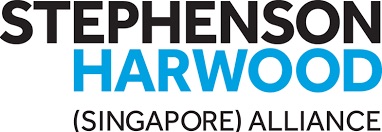7 November, 2015
On 17 August 2015, the Employment (Amendment) Act 2015 was passed by Parliament (and gazetted on 21 August 2015), introducing several noteworthy amendments to the Employment Act (Cap 91) of Singapore ("Employment Act").
These changes include the requirement to keep employment records and provide employees with written key terms of employment and itemised pay-slips. Additionally, an administrative penalty mechanism has been included to ensure compliance with these new obligations.
There are also certain operational changes to the Employment Act, such as the introduction of provisions to deal with the taking of audio recordings as well as returning of evidence collected by the Ministry of Manpower ("MOM") for investigation purposes, to clarify that an employee's right to paid leave on 'public holidays' will include all holidays declared by the Government (and not only those scheduled under the Holidays Act), and consequential amendments to other related legislation such as the Child Development Co-Savings Act.
What are the main changes that an employer should be aware of?
Written 'key employment terms'
Employers will be required to provide a written record of certain 'key employment terms' ("KET") to employees. The KET can be provided in any manner chosen by the employer which amounts to a 'written record' and can therefore be hard or soft copy format (e.g. as a letter of appointment/employment letter, in an employee handbook, or made available on the company intranet). However, only persons employed on or after the specified date (currently slated to be 1 April 2016) and who have been in employment for a continuous period of 14 days or more will be entitled to such a written record.The matters to be covered as KET have not been set out by gazette as yet. Nevertheless, MOM has provided guidelines stating that they are to include information such as the job title, main duties and responsibilities, start date, duration of employment (if fixed term), working arrangements (hours, rest days etc.), salary information, leave entitlements, other medical benefits, and probation and notice periods.
Itemised pay-slips
Employers must provide employees with itemised pay-slips when making payment of salary (or at the latest, within 3 working days of such payment) or, in the case of termination of employment, together with the outstanding salary. Pay-slips can be provided in hard or soft copy and must contain certain prescribed particulars. MOM has provided guidance on the matters to be set out in the pay-slip as well (although this too is yet to be gazetted), and they include the start and end date for each salary period, basic salary, the amount of any fixed and variable allowances, any additional payments (such as bonuses etc), deductions, overtime (if any) and the net salary paid during the relevant period.
Employee records
Employers must maintain records (in soft or hard copy) containing certain specified information (which would include pay-slip records) in respect of their current as well as former employees. These records are to be accurate, complete, covering the prescribed period (which MOM has indicated to be the latest 2 years for existing employees, and the last 2 years of employment for ex-employees) and readily accessible to the employees (although such accessibility and requirement to maintain records is limited to a period of 1 year post termination in relation to ex-employees).
Administrative penalties
The Employment (Amendment) Act 2015 deems a failure to comply with the requirement to maintain employee records, provide KET or issue itemized pay-slips (as well as giving inaccurate information without fraudulent intent to MOM officers) as civil contraventions and introduces an 'administrative penalty' framework for non-compliance. The penalty imposed will be set out in a contravention notice issued on an errant employer by MOM, and can be up to S$1000 for the first instance of non-compliance and S$2000 for second or subsequent instances.
Who do these provisions cover?
These changes cover all employees governed by the Employment Act, which currently include those in managerial or executive positions earning not more than S$4500 in basic salary.
Employers should however consider implementing these changes across the board, whether or not the relevant employees are covered by the Employment Act.
When do the changes come into effect?
For the requirements to provide KET, issue pay-slips and maintain employment records, the changes are slated to come into effect on 1st April 2016. The other changes have been operative from 22 August 2015. However, MOM has stated that they will provide a 1 year grace period for enforcement to assist businesses (particularly SME's) in meeting these requirements.
For further information, please contact:
Arthur Loke, Senior Partner, Virtus Law LLP
(a member of the Stephenson Harwood (Singapore) Alliance)
arthur.loke@virtus-law.com





